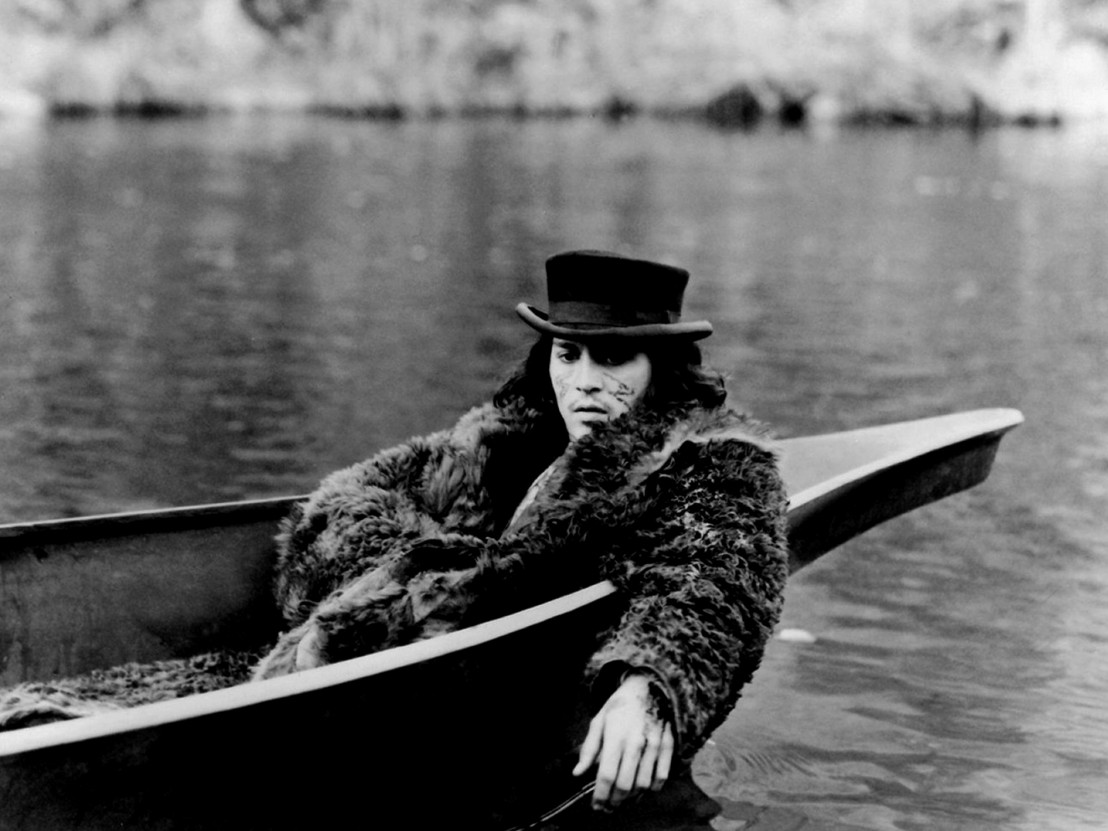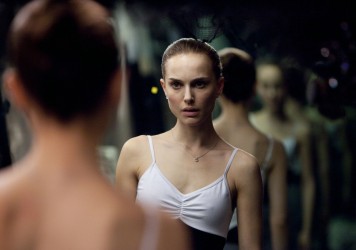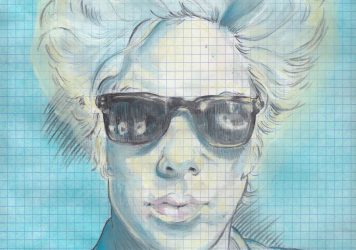
Jim Jarmusch takes an instinctual approach to filmmaking. Not a fan of the precise choreography of the storyboard and shot list, his methods can make him seem like a white-haired hipster shaman, casting the bones into the air and seeing where they land. For his introverted 1995 western, Dead Man, the disparate elements that he brought together included Johnny Depp, the poetry of William Blake and cinematographer Robbie Müller’s moody landscapes.
But music is often the most potent catalyst in Jarmusch’s alchemical mix. In 1989’s Mystery Train, Elvis’ ‘Blue Moon’ is the otherworldly echo of Memphis’ past, around which the various narrative threads are spun. In 2005’s Broken Flowers, the virile groove of Ethiopian jazz is the perfect counterpoint to Bill Murray’s despondent melancholy. Jarmusch’s soundtracks refuse to stay in the background, actively engaging with the images on screen. And yet for Dead Man, Jarmusch opted for the surprise choice of an electric guitar score, provided by rock ’n’ roll frontiersman Neil Young.
The cinema spirits must have been smiling on Jarmusch, because it was chance that brought them together. The director has mentioned that the psychedelic instrumental passages in Young’s Crazy Horse project provided inspiration when writing the film, but the idea of a Neil Young soundtrack became a reality when Jarmusch and his crew attended a Crazy Horse concert near to where they were filming in Arizona. The pair quickly found common creative ground.
Young initially considered enlisting former Nirvana members Krist Novoselic and Dave Grohl for the score. But this potential piece of indie film history was never realised, as Jarmusch, who admired the sparse guitar soundtrack that Eric Clapton recorded for obscure ’80s gangster film The Hit, persuaded Young to go it alone. For a film that follows a lone traveller in a barren land, Young’s solo guitar is suitably stark.
The sound is at times percussive and violent, at others bleakly poetic, and always – to invoke an unavoidable cliché – raw. Raw like a skinned beaver. It has none of the orchestral signifiers that tell you that these are distant and historic times. This is what it would sound like if Davy Crockett knew how to build an amp. Instead of composing pieces to be arranged later by a music supervisor, Young recorded live to a rough cut of the film in a mic’d up San Francisco warehouse, responding directly to the images and dialogue over three separate viewings of the film. This improvisational creative approach was the perfect fit for Jarmusch’s mood-heavy style, and the result is a haunting and trance-like score.
While the music for The Revenant or The Hateful Eight soars above the widescreen snowscapes, in the claustrophobic world of Dead Man’s American interior Young goes deep into the main character’s mental territory. Riffs recur and transform, circling tighter and tighter like vultures as Depp drifts further and further away from civilisation. The soundtrack is always on the edge of dissolving into fuzzy atonal abstraction, just as Depp hangs in there, bleeding out the last of his mortal life, on the edge of drifting off into eternity.
It’s a sound that doesn’t belong to the world of the characters, like the music does in the films like Mystery Train or Jarmusch’s hip-hop samurai film, Ghost Dog, but neither is it played for ironic contrast. This is a world where the machine of American expansion is coming into closer and more complex contact with Native American worlds, introducing new technology that mixes with old customs.
Young’s distinctly modern and electric sound is another jarring addition to this confusing milieu. The directive of a John Wayne adventure is to corral these worlds into a more familiar conclusion, but Jarmusch goes ever on into the unmapped West. And Neil Young is the ideal spirit guide to accompany you on this vision quest.
Published 16 May 2016

From Black Swan to High-Rise, the British composer reveals how he approaches making music for the movies.

Akron’s finest chats riffing on George A Romero and fearing for our future in The Dead Don’t Die.
By Thomas Hobbs
The American musician and composer sings the praises of Ennio Morricone’s iconic spaghetti western soundtrack.